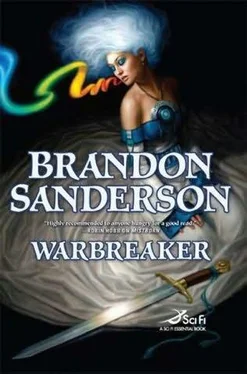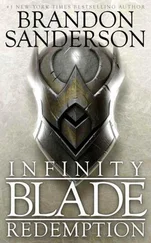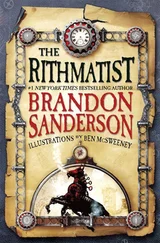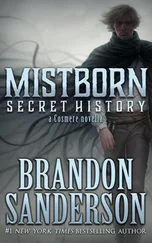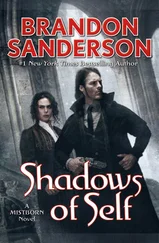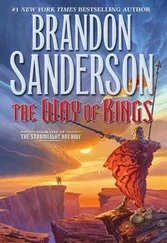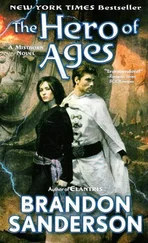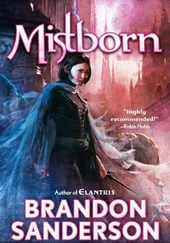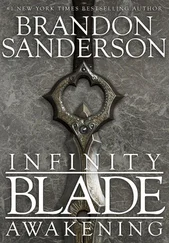Supposedly.
Lightsong moved away from the painting. A lesser priest rushed forward, removing it. Most likely, the patron hadn’t painted it himself, but had instead commissioned it. The better a painting was, the better a reaction it tended to get from the gods. One’s future, it seemed, could be influenced by how much one could pay one’s artist.
I shouldn’t be so cynical, Lightsong thought. Without this system, I’d have died five years ago.
Five years ago he had died, even if he still didn’t know what had killed him. Had it really been a heroic death? Perhaps nobody was allowed to talk about his former life because they didn’t want anyone to know that Lightsong the Bold had actually died from a stomach cramp.
To the side, the lesser priest disappeared with the jungle painting. It would be burned. Such offerings were made specifically for the intended god, and only he—besides a few of his priests—was allowed to see them. Lightsong moved along to the next work of art on the wall. It was actually a poem, written in the artisan’s script. The dots of color brightened as Lightsong approached. The Hallandren artisan’s script was a specialized system of writing that wasn’t based on form, but on color. Each colored dot represented a different sound in Hallandren’s language. Combined with some double dots—one of each color—it created an alphabet that was a nightmare for the colorblind.
Few people in Hallandren would admit to having that particular ailment. At least, that was what Lightsong had heard. He wondered if the priests knew just how much their gods gossiped about the outside world.
The poem wasn’t a very good one, obviously composed by a peasant who had then paid someone else to translate it to the artisan’s script. The simple dots were a sign of this. True poets used more elaborate symbols, continuous lines that changed color or colorful glyphs that formed pictures. A lot could be done with symbols that could change shape without losing their meaning.
Getting the colors right was a delicate art, one that required the Third Heightening or better to perfect. That was the level of Breath at which a person gained the ability to sense perfect hues of color, just as the Second Heightening gave someone perfect pitch. Returned were of the Fifth Heightening. Lightsong didn’t know what it was like to live without the ability to instantly recognize exact shades of color and sound. He could tell an ideal red from one that had been mixed with even one drop of white paint.
He gave the peasant’s poem as good a review as he could, though he generally felt an impulse to be honest when he looked at Offerings. It seemed his duty, and for some reason it was one of the few things he took seriously.
They continued down the line, Lightsong giving reviews of the various paintings and poems. The wall was remarkably full this day. Was there a feast or celebration he hadn’t heard about? By the time they neared the end of the line, Lightsong was tired of looking at art, though his body—fueled by the child’s Breath—continued to feel strong and exhilarated.
He stopped before the final painting. It was an abstract work, a style that was growing more and more popular lately—particularly in paintings sent to him, since he’d given favorable reviews to others in the past. He almost gave this one a poor grade simply because of that. It was good to keep the priests guessing at what would please him, or so some of the gods said. Lightsong sensed that many of them were far more calculating in the way that they gave their reviews, intentionally adding cryptic meanings.
Lightsong didn’t have the patience for such tricks, especially since all anyone ever really seemed to want from him was honesty. He gave this last painting the time it deserved. The canvas was thick with paint, every inch colored with large, fat strokes of the brush. The predominant hue was a deep red, almost a crimson, that Lightsong immediately knew was a red-blue mixture with a hint of black in it.
The lines of color overlapped, one atop another, almost in a progression. Kind of like . . . waves. Lightsong frowned. If he looked at it right, it looked like a sea. And could that be a ship in the center?
Vague impressions from his dream returned to him. A red sea. The ship, leaving.
I’m imagining things, he told himself. “Good color,” he said. “Nice patterns. It puts me at peace, yet has a tension to it as well. I approve.”
Llarimar seemed to like this response. He nodded as the lesser priest—who stood a distance away—recorded Lightsong’s words.
“So,” Lightsong said. “That’s it, I assume?”
“Yes, Your Grace.”
One duty left, he thought. Now that Offerings were done, it would be time to move on to the final—and least appealing—of his daily tasks. Petitions. He had to get through them before he could get to more important activities, like taking a nap.
Llarimar didn’t lead the way toward the petition hall, however. He simply waved a lesser priest over, then began to flip through some pages on a clipboard.
“Well?” Lightsong asked.
“Well what, Your Grace?”
“Petitions.”
Llarimar shook his head. “You aren’t hearing petitions today, Your Grace. Remember?”
“No. I have you to remember things like that for me.”
“Well, then,” Llarimar said, flipping a page over, “consider it officially remembered that you have no petitions today. Your priests will be otherwise employed.”
“They will?” Lightsong demanded. “Doing what?”
“Kneeling reverently in the courtyard, Your Grace. Our new queen arrives today.”
Lightsong froze. I really need to pay more attention to politics. “Today?”
“Indeed, Your Grace. Our lord the God King will be married.”
“So soon?”
“As soon as she arrives, Your Grace.”
Interesting, Lightsong thought. Susebron getting a wife. The God King was the only one of the Returned who could marry. Returned couldn’t produce children—save, of course, for the king, who had never drawn a breath as a living man. Lightsong had always found the distinction odd.
“Your Grace,” Llarimar said. “We will need a Lifeless Command in order to arrange our troops on the field outside the city to welcome the queen.”
Lightsong raised an eyebrow. “We plan to attack her?”
Llarimar gave him a stern look.
Lightsong chuckled. “Fledgling fruit,” he said, giving up one of the Command phrases that would let others control the city’s Lifeless. It wasn’t the core Command, of course. The phrase he’d given to Llarimar would allow a person to control the Lifeless only in noncombat situations, and it would expire one day after its first use. Lightsong often thought that the convoluted system of Commands used to control the Lifeless was needlessly complex. However, being one of the four gods to hold Lifeless Commands did make him rather important at times.
The priests began to chat quietly about preparations. Lightsong waited, still thinking about Susebron and the impending wedding. He folded his arms and rested against the side of the doorway.
“Scoot?” he asked.
“Yes, Your Grace?”
“Did I have a wife? Before I died, I mean.”
Llarimar hesitated. “You know I cannot speak of your life before your Return, Lightsong. Knowledge of your past won’t do anyone any good.”
Lightsong leaned his head back, resting it against the wall, looking up at the white ceiling. “I . . . remember a face, sometimes,” he said softly. “A beautiful, youthful face. I think it might have been her.”
The priests hushed.
“Inviting brown hair,” Lightsong said. “Red lips, three shades shy of the seventh harmonic, with a deep beauty. Dark tan skin.”
Читать дальше
